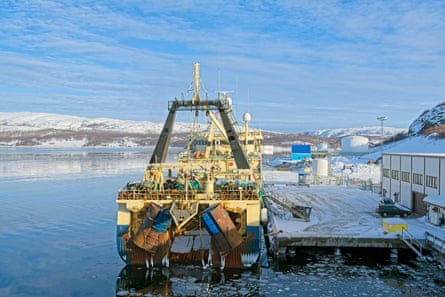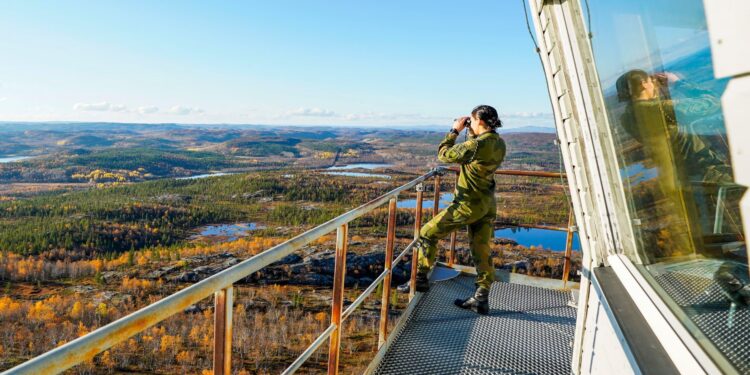Despite Russia’s invasion of Ukraine, in the Barents Sea it maintains cordial relations with Nato neighbours over fishing rights – barely
While there is tension since the war, he says, both countries see benefit to maintaining cordial relations on ocean matters, despite “the elephant in the room”. For example, he notes that although the fish are born on the Norwegian coast, they live both in the Norwegian and Russian zones – and it is in both countries’ interests to fish the bigger cod in the Norwegian zone rather than the still-growing cod in the Russian zone, as well as to limit access to any other third parties, such as the UK, EU and Iceland.
“Since the Norwegian government has exempted fisheries cooperation from the boycott [against doing business with Russia], the institute where I work is probably among the very few that still have some kind of cooperation with Russian institutions in the western world,” he says.

Some new restrictions are in place. In the nearby harbour of Kirkenes, one of three Norwegian ports that Russian fishing boats are still allowed to enter, vessels flying Russian flags are still a regular presence. However, fishers’ freedom to walk around was recently limited, and Russian vessels can no longer use Norwegian ports for repair and maintenance, a major blow to local businesses.
Thomas Nilsen, editor of Kirkenes-based online news publication the Independent Barents Observer, says the war in Ukraine has hurt Kirkenes and is increasing tensions in the Arctic. “There are more exercises, more surveillance and attention to the Norwegian Sea and the Barents Sea,” he says.

Kirkenes has long been known as “spy city” but Nilsen says the attention given to potential Russian surveillance has increased public awareness, making it harder for Russia to conduct such operations both on land and at sea. “Russia knows,” he says, “that if they send military troops into this area, that will trigger article 5 [of the Nato treaty, stipulating that an attack on one member is considered an attack on all]. “But sending in people with civilian clothes and mapping Norwegian infrastructure like bridges, water supply, harbours is very important for Russia, and I think they are doing that.”
In his garrison office at Høybuktmoen, the commander of the border guard, Michael Rozmara, says that despite the apparently good relations on the water, things have changed dramatically in the past two decades. After the cold war ended, he says, Russian and Norwegian border guards grew so close that in 2007 they had a joint Christmas party with their families. The next year, however, Russia invaded Georgia, and in 2014 it annexed Crimea. No more Christmas parties.
The Norwegian consulate in Murmansk is now closed; where there were once about 300,000 civilian crossings a year at Storskog, there are now a fraction of that number as visas expire. Most people crossing from Russia into Norway either hold a Schengen visa or are fishing boat workers changing crews at Norwegian ports, Rozmara says.

“We have been planning for many years: how do we defend Norway if Russia should be an aggressor?” he adds. Until recently, “that thought has been very far away”. Now, although Rozmara says he is sad about the breakdown in relations, he is ready to defend Norway. “Now is really the right time to stand up for what you believe, and your values, and your nation, and Nato, and those cheering the same values as we do.”
Source: The Guardian











Recent Comments